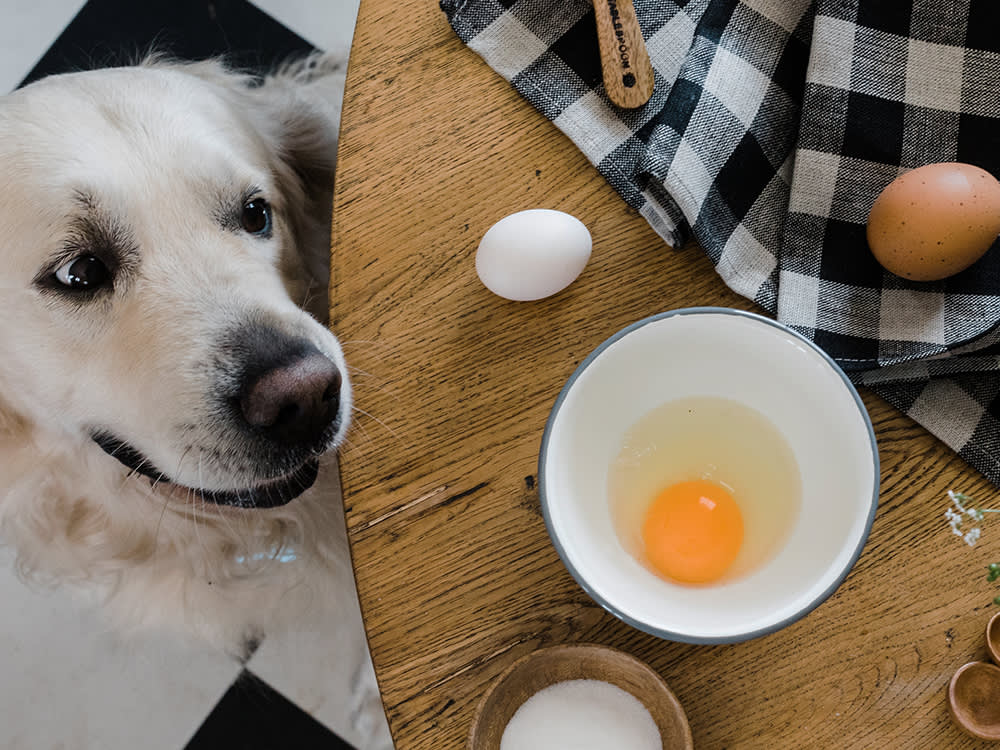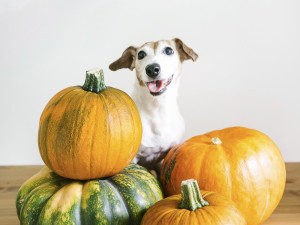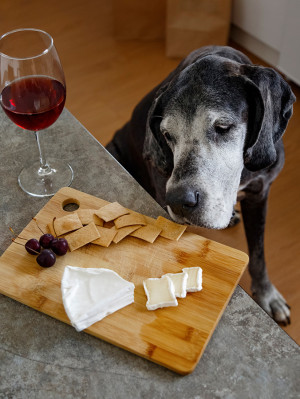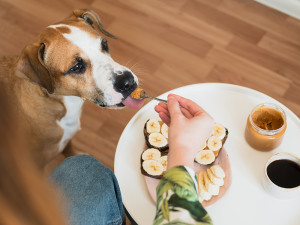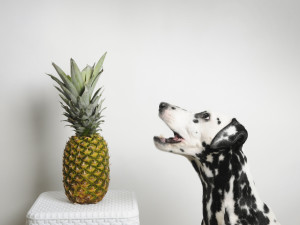In This Article:
Are Eggs Good for Dogs? Can Dogs Eat Eggs? Can Dogs Eat Raw Eggs? Are Eggs Completely Safe for Dogs? How to Safely Prepare Eggs for Your Dog Other Foods That Are Good for Dogs Other Foods That Are Not Good for Dogs Final Thoughts: Can Dogs Have Eggs? Frequently Asked Questions
Can dogs eat eggs? The short answer: Yes, dogs can eat eggs as long as the eggs are cooked. In fact, the egg is a powerhouse of nutrition (including the shell!). Eggs contain all the essential amino acids and are a highly digestible source of protein with a high nutritional value. They are loaded with vitamins and minerals, too.
Main takeaways
Eggs can be a nutritious snack for dogs and a good source of protein.
Dogs can eat eggs, but they should be cooked. Dogs should not be fed raw eggs due to concerns about bacterial contamination, such as Salmonella.
Every part of an egg may not be ideal for every dog. Some dogs may not tolerate the fat content of egg yolks or the calcium content of eggshells.
Are eggs good for dogs?
Eggs can be a nutritious treat for dogs. Eggs and white rice can be an easily digestible meal for dogs recovering from gastrointestinal upset. When prepared properly, dogs can eat entire eggs. But when considering all parts of an egg — the yolk, whites, and shell — not every part of the egg is ideal for every dog. For example, all of the fat content in an egg is in the yolk, so feeding egg yolk may not be a good idea for a dog with pancreatitis or on a fat-restricted diet.
Nutritional benefits of feeding eggs to your dog
Eggs are packed with nutrients that benefit people and dogs alike. While egg whites are an excellent source of protein, most of the vitamins and minerals are found in the yolk. Eggs are rich in these nutrients:
Vitamin A
B vitamins, including pantothenic acid, riboflavin, and thiamine
Selenium
Protein
Fatty acids
The antioxidants lutein and zeaxanthin
Can dogs eat eggs?
Dogs can eat eggs as an occasional low-carb, high-protein snack. To maximize the nutritional benefits of eggs, consider their source. The level of some nutrients in eggs, such as fat-soluble vitamins, depends on the hen’s diet.
Let’s consider conventional eggs versus omega-3 enriched eggs, which come from hens who were fed flax. Enriched eggs contain a lot more of the essential omega-3 fatty acids alpha-linolenic acid (ALA), eicosapentaenoic acid (EPA), and docosahexaenoic acid (DHA). Omega-3 fatty acids are important for eye, brain, and heart health.
When giving your dog eggs, introduce them slowly to ensure they do not cause an upset stomach. When fed as a snack, eggs should not make up more than 10 percent of a dog’s diet. Too many snacks can contribute to obesity and weight-related issues like arthritis and diabetes.
Can dogs eat raw eggs?
Dogs should not be fed raw eggs. Raw eggs can be contaminated with bacteria, with the most concerning being Salmonella. Salmonella can be present in eggs or on eggshells and can cause severe gastrointestinal disease in people and dogs when consumed. Signs of salmonellosis in dogs include lethargy, fever, vomiting, abdominal pain, and diarrhea (with or without blood).
Dogs who regularly eat raw eggs are at risk for biotin deficiency. Biotin plays an important role in maintaining the health of the skin, eyes, liver, and nervous system. Raw egg whites contain a protein called avidin, which binds to biotin and prevents it from being absorbed by the body. Regularly feeding raw eggs can put a dog at risk for biotin deficiency. Cooking eggs prevents avidin from binding to biotin.
Are eggs completely safe for dogs?
Eggs are generally safe, but not all parts of the egg are best for all dogs, especially dogs with certain underlying health conditions.
Egg whites are high in protein and low in fat. This part of the egg is the least likely to cause any issues. Egg yolks are high in nutrients but also high in fat. Egg yolks may not be a great option for dogs with gastrointestinal diseases or sensitive stomachs.
What about eggshells for dogs? Eggshell membranes (the thin layer between the hard shell and the egg white) are high in proteins like collagen and glycosaminoglycans, which may help with joint health. Eggshells are made of 94 percent calcium carbonate and can be boiled, crushed, and used as a source of calcium for dogs on homemade diets. Dog parents who want to prepare their pup’s food at home should always consult with a board-certified veterinary nutritionist to make sure the homemade diet contains all of the nutrients, vitamins, and minerals a dog needs to thrive.
Dogs with underlying health issues, such as kidney disease, parathyroid disease, or a history of calcium oxalate bladder stones, should steer clear of egg shells or other forms of extra calcium in their diet. Consult with your veterinarian to see if eggs or eggshells are suitable for your dog.
Potential risks of giving eggs to your dog
Many dogs love eggs, but not all dogs can tolerate them. As with any new snack or diet change, dogs can develop stomach upset.
Egg shells should be crushed before being fed to your dog. Large pieces of eggshells can cause esophageal irritation or even get stuck on the way down to the stomach.
Eggs should be cooked thoroughly before being fed to dogs. No runny yolks. Feeding raw or undercooked eggs risks exposure to bacteria, like Salmonella, that would be killed during cooking.
Can dogs be allergic to eggs?
Dogs can be allergic to eggs. Chicken is one of the most common food allergens in dogs. Dogs who are allergic to chicken may also be allergic to eggs. Food allergies in dogs can cause hives, itchy skin or paws, or stomach upset.
How to safely prepare eggs for your dog
There are many ways to feed eggs to your dog. Here are a few ideas to get you started:
Simple scrambled eggs: Scrambled eggs provide a mash-up of the high-protein egg white and the nutrient-dense yolk. Just make sure you serve them plain. You might appreciate a little salt, pepper, and butter, but you should keep it simple for your dog.
Hard-boiled eggs: Hard-boiled eggs are quick and easy, and they have the added benefit of being able to be prepared in advance. Peel hard-boiled eggs and cut them into bite-sized pieces before serving to your pup.
Make an egg white omelet: For a low-fat option, mix an egg white with some of your dog’s favorite dog-safe veggies, such as spinach. Skip the cheese and ingredients that are toxic to dogs, such as onions, chives, and garlic.
Turn them into a topping: You can chop up cooked eggs and use them as a topper to enhance your dog’s usual meal. (Make sure you take into account the calories in an egg before supplementing your dog’s food.)
Other foods that are good for dogs
Tuna: It’s stinky, but it’s packed with protein and omega-3 fatty acids. Be sure to feed canned tuna packed in water, not oil.
Broccoli: Broccoli can be a nutritious snack for dogs and has the extra benefit of easy preparation.
Shrimp: When eaten in moderation, shrimp can be a nutritious treat for dogs, too.
Other foods that are not good for dogs
Chicken bones: Cooked chicken bones can splinter and break, making them a high risk for becoming a choking hazard or causing damage to the intestines.
Almonds: Because almonds are difficult for dogs to digest, they should be avoided.
Avocados: Stomachaches and diarrhea can occur when dogs ingest avocados.
Final thoughts: Can dogs have eggs?
Dogs can have eggs; the eggs just require some preparation. Always cook eggs before feeding them to your dog, and never feed them raw eggs. As with all snacks, feed eggy treats in moderation.
FAQs
Can dogs eat eggs?
Yes, dogs can eat eggs as long as they consume them in moderation. Eggs and other human foods should make up no more than 10 percent of a dog’s diet.
Can dogs eat eggshells?
Dogs can eat eggshells and they can be an excellent source of calcium for your pup. Just be sure the eggshells are cooked and ground up before feeding.�
How many eggs can a dog eat?
The number of eggs a dog can eat depends on their size. To avoid an upset stomach or diarrhea, you should feed eggs to your dog only in moderation.
Are eggs safe for dogs?
Yes, eggs are safe and can be fed to your dog in a variety of ways as long as they’re cooked.
Can puppies eat eggs?
Yes, puppies can eat eggs. Puppies should only eat eggs in moderation, and the eggs should be cooked before serving.
References
Gunnars, Kris. “Proven Health Benefits of Eating Eggs.” Healthline, 20 Dec. 2022, www.healthline.com/nutrition/proven-health-benefits-of-eggsopens in new tab.
Jackson, Hilary A. “Food Allergy in Dogs and Cats; Current Perspectives on Aetiology, Diagnosis, and Management.” Javma-Journal of the American Veterinary Medical Association, vol. 261, no. S1, 18 Mar. 2023, pp. 1–7, https://doi.org/10.2460/javma.22.12.0548.opens in new tab
National Institute of Health. “Office of Dietary Supplements - Biotin.” Nih.gov, 2017, ods.od.nih.gov/factsheets/Biotin-HealthProfessional/.opens in new tab
Réhault-Godbert, Sophie, et al. “The Golden Egg: Nutritional Value, Bioactivities, and Emerging Benefits for Human Health.” Nutrients, vol. 11, no. 3, 22 Mar. 2019, p. 684, www.ncbi.nlm.nih.gov/pmc/articles/PMC6470839/, https://doi.org/10.3390/nu11030684opens in new tab.
